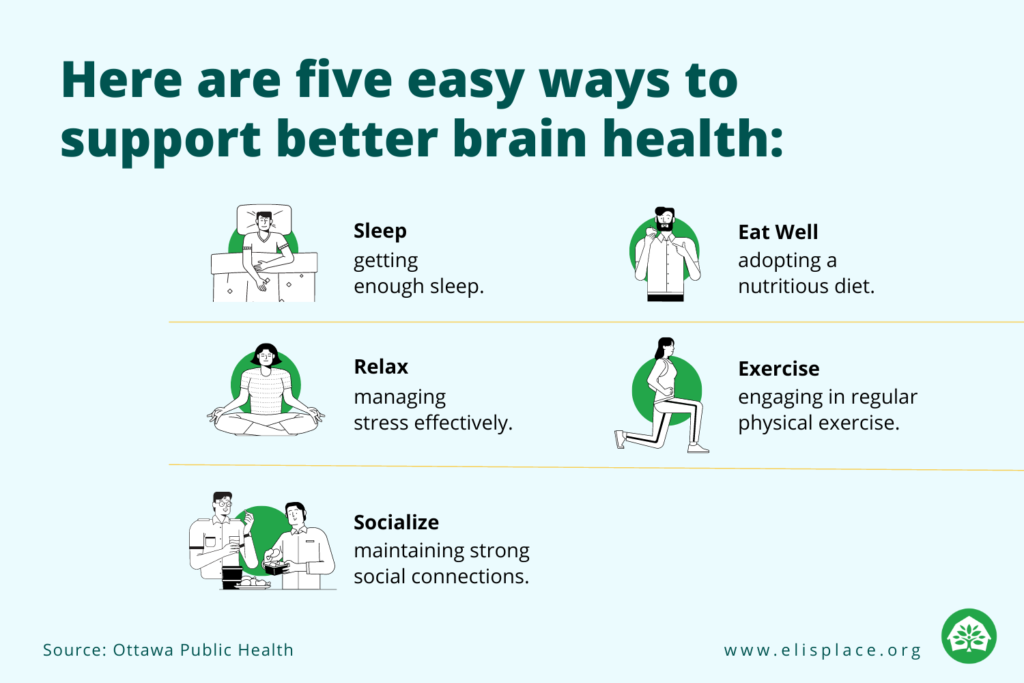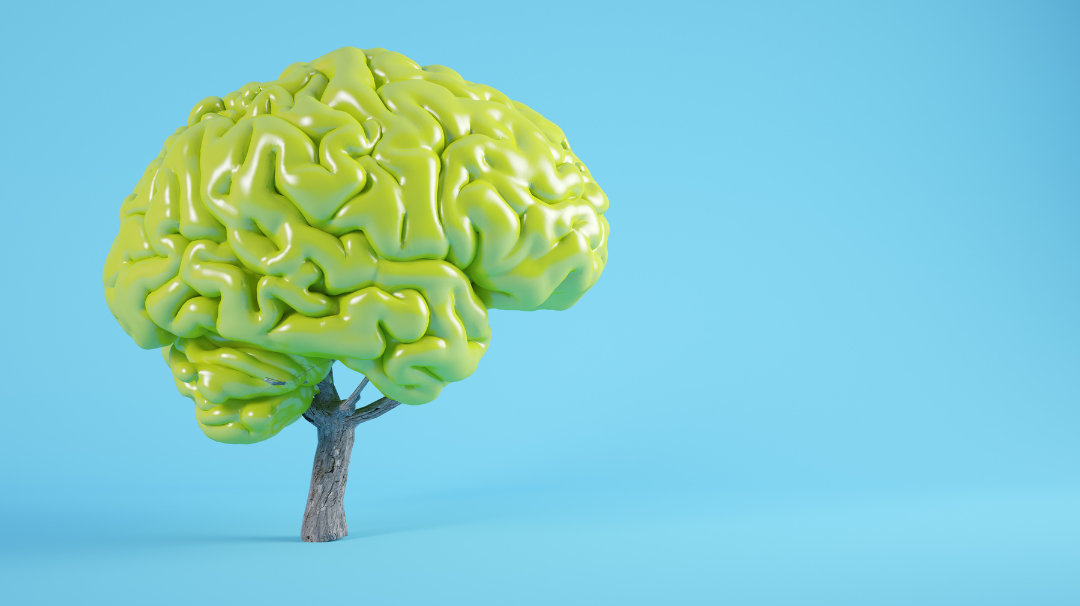We now recognize that mental health and brain health are deeply connected. This evolving perspective highlights the importance of prioritizing brain health as a foundational part of overall wellness.
Here, we aim to explore the intricate connection between mental health and brain health. We underscore the importance of adopting a multidisciplinary approach to research and treatment. We outline actionable steps individuals can take to enhance brain health. And ultimately, we emphasize the key role of brain health in fostering mental well-being.

What is Brain Health?
When people consider brain health, they may think about cognitive abilities or worry about diseases such as dementia. However, brain health encompasses much more than this. According to the Center for Brain Health, “no human system has more potential to be strengthened and rewired than the human brain.”
Without a doubt, it is crucial to establish a comprehensive definition that encompasses the multifaceted nature of brain health. According to The Lancet Neurology, brain health refers to the optimal functioning of the brain. This includes both its physical and mental aspects and goes beyond the absence of disease or mental disorders. Brain health emphasizes maintaining cognitive abilities, emotional well-being, and resilience throughout life.

Interconnection between Mental Health and Brain Health
Recognizing the interdependence of mental health and brain health is vital for a holistic understanding of well-being. One crucial aspect in bridging these two realms is reducing the stigma associated with mental health. Organizations like the Canadian Mental Health Association (CMHA) have been at the forefront of promoting awareness and combating the stigma surrounding mental health issues. Their efforts have fostered a more supportive environment, encouraging individuals to seek help without fear of judgment.
In addition, adequate funding for research plays a pivotal role in advancing our knowledge of brain health and mental well-being. Brain Canada, a non-profit organization, focuses on driving discoveries to improve brain health and supports initiatives to better understand mental illnesses. In addition, increased funding allows researchers to explore innovative approaches and develop effective treatments, ultimately improving mental health outcomes.
Furthermore, ensuring accessible treatment options is vital in enabling individuals to receive the support they need. Dr. Levitt, a member of the Eli’s Place Professional Advisory, highlights the critical link between mental health and brain health. He advocates for integrated care that addresses both the psychological and neurological aspects of mental illness, promoting a holistic approach to treatment.

The Need for a Multidisciplinary Approach
To begin with, advancing our understanding of the connection between brain health and mental well-being requires a multidisciplinary approach. Collaborations among neuroscientists, psychologists, psychiatrists, and other healthcare professionals are crucial in unravelling the complexities of the brain and its impact on mental health.
The CMHA highlights the significance of brain science in its pursuit of advancing mental health care. With ongoing research, new findings continually emerge, shedding light on the intricate connections between brain health and mental well-being. This interdisciplinary collaboration paves the way for innovative interventions and personalized treatments. It also offers preventive strategies to reduce the risk of mental illnesses and promote brain health throughout an individual’s lifespan.

Encouraging Better Brain Health
Professionals play an important role in promoting brain health. But individuals also possess the power to make a positive impact on their own brain health. Ottawa Public Health provides valuable tips that you can incorporate into your daily life to support brain health.

Along with these practices, engaging in intellectually stimulating activities such as reading, puzzles, or learning a new skill can help keep the brain active and healthy. Mindfulness and relaxation techniques can also help improve overall brain health by reducing stress and boosting emotional well-being.
The growing recognition of brain health as a crucial part of mental health marks a notable shift in our understanding of well-being. By acknowledging the connection between mental health and brain health, we can reduce stigma, increase funding for research, and improve treatment accessibility.
Embracing a multidisciplinary approach allows us to uncover new insights and develop innovative strategies for promoting brain health and enhancing mental well-being. As individuals, we can also contribute by adopting healthy lifestyle practices that nurture our brain health. By prioritizing brain health we are ultimately prioritizing mental health. And working toward a society that values and supports the well-being of every individual.
Eli’s Place will be a rural, residential treatment program for young adults with serious mental illness. To learn more about our mission and our proven-effective model click here.




